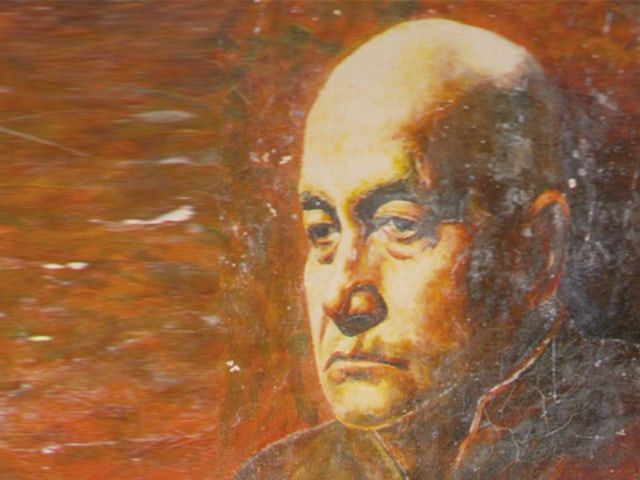Remembering the poet of revolution and romance
A poet of revolution, youth and of wine, Josh Malihabadi is remembered for many different themes.

Dr Halal Naqvi, who is affiliated with the Karachi University Pakistan Studies Centre and is also the editor of the Josh Shanasi magazine, lauds the poet’s contributions to literature. “He was a prolific writer, he wrote about religion, history and politics. He fought for the independence of the Indian subcontinent with his pen. Many of his poems are against the British rule,” said Dr Naqvi.
He published his first collection of poems in 1920, when he was just 25 years old.
Josh Malihabadi’s real name was Shabir Hussain Khan. He was born on December 5, 1898, in the Malihabad area of Uttar Pradesh, India. His Pakhtun family’s literary background and habits were ingrained in him from the start. He acquired his early education in Lucknow and passed the Senior Cambridge exams from St Peters College, Agra in 1924.
He is remembered by many as the greatest revolutionary poet of the pre-independence period. Some of his revolutionary poems were even broadcast by German radio during the Second World War.
kaam hai mera taghayyur, naam hai mera shabaab
mera na’ara: inqilaab-o-inqilaab-o-inqilaab
(My task is change, my name is youth! My slogan: revolution and revolution and revolution!)
He knew Urdu, Persian, Hindi and English and his poetry collections include the Paighambar-e-Islam, Shula-o-Shabnum, Fikro-Nishat, Sumbul-o-Salasal, Maujood-o-Mufakir, Aroos Adab, Awaz Haq and Dewan Josh. He also wrote prose and published works include Auraq Zareen and Muqallat Josh.
Poets remember Josh as a ‘man who was an institution in himself’. Professor Sahar Ansari, poet and scholar, said, “Be it a nazm or ghazal, he [Josh] would add some of his cultural philosophy into all these styles. You could talk about him on any topic and you would realise that there was probably no one of his stature among his contemporaries”.
Josh migrated to Pakistan in 1956. He first stayed in Karachi and then moved to Islamabad. He also remained associated with the Urdu Dictionary Board and the information ministry. He died on February 22, 1982.
Josh wrote poetry on wine and nature, elegiac verse, quatrains, film songs, an epic poem on Genesis, as well as an impassioned and outspoken autobiography, Yaadon ki Baaraat (‘A Cavalcade of Memories’).
He was also a noted journalist and commentator and edited several literary journals, including the distinguished Aaj Kal.
With additional input from the Department of South Asia Studies, University of Pennsylvania
Published in The Express Tribune, December 5th, 2010.


















COMMENTS
Comments are moderated and generally will be posted if they are on-topic and not abusive.
For more information, please see our Comments FAQ